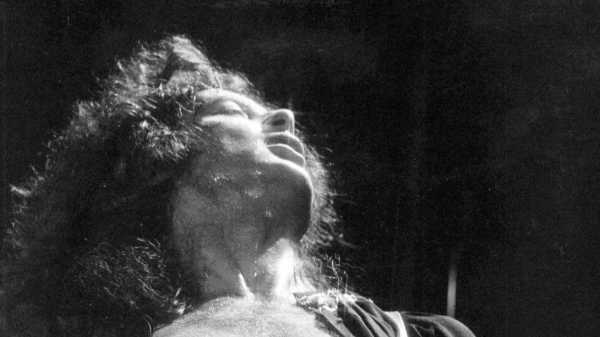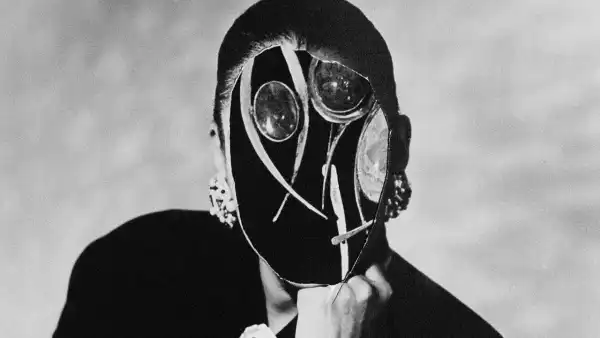
Save this storySave this storySave this storySave this story
Back in 2021, I wrote an essay about the great musicians who, surprisingly, had performed at my high school, in Kansas City, in the nineteen-sixties: the Crystals, the Drifters, Booker T. & the M.G.’s, Ike & Tina Turner. There were so many of them that I assumed high-school dances with big-name talent must have been common in that era, but that turned out not to be the case. Tina Turner and Booker T. Washington both told me that they had almost never performed at high schools, even when they were starting out. The only similar example I found involved St. Xavier High School, an all-boys Catholic prep school in Cincinnati. Xavier’s prom in 1968 featured the Yardbirds, a group that had had a remarkable succession of lead guitarists: Eric Clapton, followed by Jeff Beck, followed by Jimmy Page. The Xavier prom took place at an inflection point in the history of popular music: just a few weeks later, the Yardbirds split up, and Page formed Led Zeppelin.
I couldn’t find a way to include Xavier’s prom in an essay about my own high school, but I thought about it recently when my wife and I saw the new documentary “Becoming Led Zeppelin.” The movie—which was directed by Bernard MacMahon and written by him and Allison McGourty—doesn’t mention the school, of course, but it perfectly describes the musical and cultural contexts in which the 1968 prom took place. The day after we saw the movie, I found a phone number for Rip Pelley, the president of Xavier’s junior student council at the time. I called him, and asked him to reminisce.
“We had two different proms, a junior prom and a senior prom, and each of them always had a typical boring orchestra,” he said. “My idea was pretty simple: let’s put the two proms together and get a rock band.” The juniors were more enthusiastic than the seniors, who didn’t necessarily want eleventh-grade babies spoiling their big party, but a narrow majority voted in favor. On weekends, in those days, Pelley played guitar in a cover band that sometimes performed as a local opening act for the Lemon Pipers, a one-hit wonder from Oxford, Ohio, fifty miles north of Cincinnati. (Their one hit was “Green Tambourine,” which reached No. 1, for a single week, in February, 1968.) Pelley’s band, Uncle Sam’s Population, had an agent, who gave him the phone number of a bigger agent, in New York. “I called the guy, and we went through a list of bands that were available and kind of in our price range,” Pelley told me. They settled on the Grass Roots, a folk-oriented rock group, whose two big songs—“Let’s Live for Today” and “Midnight Confessions”—were unlikely to raise alarms with the Jesuits who ran the school.
“So everything was great, and most people were pretty happy and excited,” he continued. “But then I got a call from the agent in New York. I don’t remember what the reason was—someone in the band was sick, or the routing didn’t work, or the tour got cancelled—but, whatever it was, the Grass Roots couldn’t make it.” Pelley panicked. The prom was weeks away, and he knew that if the evening fell apart he would be blamed. “But then the agent said, ‘Hold on, hold on. I’ve got a substitute for you, and I think you’re gonna like it.’ ”
The Yardbirds were available because they were scheduled to be in Cleveland the night before the prom, to appear on “Upbeat,” a nationally syndicated television show aimed at teen-agers, and they had nothing to do the next day. “I’m, like, holy cow,” Pelley said. “I was jumping up and down. But I also realized that I had a problem.” The Grass Roots were folky, and the Yardbirds were not. “They were more edgy,” Pelley said. “ ‘Edgy’ being the kind word.”
Many Xavier students, and probably all of its administrators, were unfamiliar with the Yardbirds. They had had two songs on Billboard’s Top Ten, “For Your Love” and “Heart Full of Soul,” but both had been released in 1965. One of the school’s prefects walked the halls with Pelley and asked students how they felt about the switch. Opinions were mixed, Pelley told me. “Somehow, though, I convinced everyone that we didn’t have a choice, and we got final approval.” The only condition imposed by the school was that the program also had to include what Pelley described as a “bubble band”—an orchestra like the one that performed every week on “The Lawrence Welk Show.” The father of Pelley’s girlfriend—Pattie Purdy, a sophomore at Regina High School—happened to be the leader of an ensemble that could pass for one of those, the Dick Purdy Orchestra. They agreed to alternate forty-five minute sets with the Yardbirds, two sets each.
Not long before the prom, the local representative of the Yardbirds’ label, Epic Records, called Pelley and told him she had to go out of town. “So she asked me, ‘Can you pick them up at the airport?’ ” he said. Pelley drove a 1967 Mustang. The whole band wouldn’t fit, so he enlisted a couple of friends. He and Purdy took Page, who threw his guitar into the trunk and squeezed into the back seat. Pelley was wearing a white dinner jacket, and Purdy was wearing a long pink gown with short sleeves. “Jimmy’s first question was, ‘Why are you dressed like that?’ ” Pelley told me. “I said, ‘You’re playing at our prom.’ And he said, ‘What the fuck is a prom?’ ” They got along well, though, and the band invited them up to their hotel room, and autographed their prom programs. “They were very nice guys, very pleasant,” Pelley said. “We hung with them for fifteen or twenty minutes, and then we went to the convention center.” The ballroom there had been decorated by members of the prom committee and their mothers. The theme of the dance was “Scarborough Fair.”
“The thing I remember most is that my dad was playing on the same stage with Jimmy Page,” Purdy told me. “And it was really, really loud—although I was used to loud because I would go to Rip’s performances.” The Yardbirds were not what anyone would call a dance band. Pelley said, “People were a little unsure what to do. You know, should we dance, or should we watch like we’re at a concert?” The Yardbirds played an early version of “Dazed and Confused”—later a Led Zeppelin concert staple—which Page had adapted from a similar song of the same name by Jake Holmes, a folk-rock guitarist and songwriter who had opened for the Yardbirds at the Village Theatre, in New York, the year before. (Holmes finally sued Led Zeppelin for infringement, in 2010, and received an undisclosed settlement.) During part of that song, Page played his guitar with a violin bow, as he also did later, with Led Zeppelin.
Page wore tight pink pants and a flowing shirt. He played a 1959 Fender Telecaster, which Beck had given him in 1966. Page had stripped the guitar’s body to the bare wood and then used poster paint to decorate it with a psychedelic image of a dragon—a design that Fender later replicated in a limited edition. When the Yardbirds had finished their first set, a priest told Pelley that he had a bottle of liquor, and asked, “Do you think it’d be O.K. if I give this to them?” The gesture was unnecessary, because the band had set up a bar in their dressing room and had been drinking since before the prom began. At some point, between sets, a prom king and queen were crowned.
No one at Xavier could have known this, but, just a few weeks before the prom, Jim McCarty, the Yardbirds’ drummer, and Keith Relf, the lead singer, had told Page that they wanted to quit, and not long after that Chris Dreja, the bass player, said that he wanted to quit, too. (Dreja and McCarty later played together in several other bands, and McCarty tours with a revived version of the Yardbirds, which might conceivably be available for a prom.) Dreja, McCarty, Page, and Relf’s last performance as the Yardbirds was at Luton Technical College, in England, on July 7th, ten weeks after “Scarborough Fair.”
Almost immediately after the Yardbirds broke up—and this is a story that “Becoming Led Zeppelin” tells well—Page assembled his new band, with John Paul Jones on bass, Robert Plant on vocals, and John Bonham on drums. All four musicians’ life stories are interesting. Jones’s father had helped him learn the bass by telling him to watch his left hand as he played the piano. (He and his wife were vaudeville performers.) As teen-agers, Jones and Page started working as studio musicians and played together in the orchestra that backed Shirley Bassey when she recorded the theme song of the movie “Goldfinger,” in 1964. Plant, whose father wanted him to be an accountant, auditioned for the band by accompanying Page on “Babe I’m Gonna Leave You,” a folk song that Joan Baez had recorded. (Page and Plant’s version is the second track on their first album, “Led Zeppelin.”) Plant was so determined that John Bonham should be their drummer that he offered to lobby Bonham’s mother. The name Led Zeppelin was suggested by Keith Moon, of the Who. (It was a joking reference to a fear of going down even worse than a lead balloon. Dropping the “a,” so that people wouldn’t mispronounce it, was someone else’s idea.)
The new band rehearsed in a big open room on the top floor of Page’s home, a boathouse on the Thames, and then played ten shows in Denmark and Sweden. During those shows, in order to fulfill a contractual obligation, they called themselves the Yardbirds or the Yardbirds featuring Jimmy Page. Plant had been homeless not long before joining the band; in the movie, he says that, on the flight back to England from Scandinavia, he marvelled at being surrounded by “stuff that we would normally have stolen.” They performed as Led Zeppelin for the first time on October 25th, at Surrey University. Page noted in his appointment diary that their fee for that show was a hundred and seventy-five pounds.
“Led Zeppelin” came out in January, 1969, less than nine months after the Xavier prom. I was in eighth grade, and bought it immediately. I used to lie on my back on the floor of my room and play the first side over and over, as loud as I could stand it, with my stereo speakers tipped together above my head, like a little roof. Three friends and I saw them at Memorial Hall, in Kansas City, Kansas, on November 5th. The night before, they’d played in Kitchener, Ontario, and they were on their way to San Francisco, where they were booked for three nights at Winterland. They had shipped all their instruments and amps ahead to California, so for our show they used equipment that they’d rented from a music store in a Kansas City suburb or borrowed from one or another of their warmup acts, of which there were five. My friend Henry recalls that one of those acts was a local guy named Bill Zickos, who did a solo drum routine. “We all thought that was weird but decided he was good,” Henry told me recently. “We stood up a few times during the other acts and shouted, ‘We want Bill Zickos!’ ” There were two shows, and, because November 5th was a school night, we went to the early one. We sat in the balcony. Our tickets cost three dollars and fifty cents. I was amazed that Jimmy Page sounded exactly like Jimmy Page even though he was playing a guitar that belonged to someone else.
As I watched “Becoming Led Zeppelin,” I kept bracing myself for the inevitable moment in a rock documentary when a manager, promoter, or accountant screws the musicians out of millions, but it never came. Page—who had barely paid attention to anything but his guitar when he was in school—structured their record deal brilliantly, so that the group owned all their songs, and record-company executives were forbidden to mess with any of them or to release them as singles. (Page believed that albums should be listened to whole.) They recorded parts of their second album, “Led Zeppelin II,” by stopping at studios along the route of their second American tour; it came out two weeks before the show that my friends and I saw, and two months after that it knocked the Beatles out of the No. 1 spot on the Billboard 200. I bought it, of course, and also “Led Zeppelin III,” which was released in 1970. But I’m pretty sure I never owned their fourth album, on which the best-known song, “Stairway to Heaven,” struck me only as annoying. By then, I guess, my taste in music had matured. They broke up in 1980, shortly after Bonham died of substance-abuse issues that were evident even from the balcony at Memorial Hall in 1969.
I asked Pelley whether the Xavier prom had had an effect on his life after high school, and he said that it had. The Epic representative who asked him to pick up the band at the airport had sent him a big box of records before the prom, he said, and the gift was a revelation. “I knew that Epic records had yellow labels, but the labels on the records in the box were all white,” he told me. “Then I saw that each label said ‘promotional copy, not for sale.’ Free records! And I went, Man, I got to look into this.” He studied broadcasting at the University of Cincinnati’s College-Conservatory of Music, and worked in radio while there. He held jobs at record companies, spent five years as the director of artist development at Elektra/Asylum, and promoted many well-known performers. “I ended up working with the Eagles, Queen, Joni Mitchell, Jackson Browne, Linda Ronstadt, Carly Simon, Tony Orlando, Neil Sedaka, lots of others,” he said. He now lives outside Las Vegas and owns Accelerated Marketing, a company that works with the music industry. I asked him whether he still plays the guitar.
“Oh, hell no,” he said. ♦
Sourse: newyorker.com







